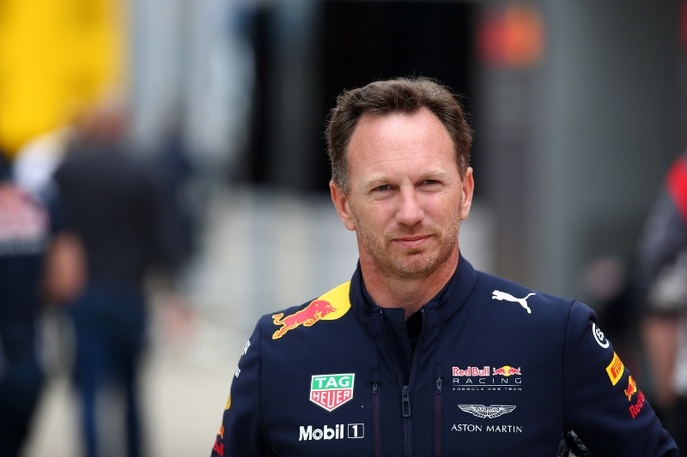Horner: F1 ‘at a crossroads’ on future engines, Liberty influence key

Red Bull team principal Christian Horner believes Formula 1 must decide upon its core objectives which will lead discussions on future engine regulations and hints new owners Liberty could hold the key with a focus on the show element of the sport.
Talks between engine manufacturers, both currently in F1 and interested in joining the sport, as well as the FIA and Liberty have been taking place to thrash out the future direction of the sport.
Liberty is keen to attract more manufacturers back to the sport - aiming to expand on the four current engine suppliers - while the new owners have placed strong focus on improving the spectacle of F1 as the pinnacle of motorsport.
Horner would like to see future engine regulations play less of a dictating role in terms of outright performance having seen Mercedes dominant the V6 hybrid turbo era but feels any new engine rules must look into the future philosophy of F1.

"I think what's really interesting is that Formula One is effectively at a crossroads with the new regulations," Horner said. "The regulations theoretically come in 2021 and there will be probably and eight to ten-year life on those engines, so what we are looking at is actually is Formula One's relevance pretty much up to 2030.
"By 2030 how many people are actually going to be driving cars? Are they going to be autonomous? Are they going to be electric? The world is changing so fast in that sector.
"Formula One has some serious questions that it needs to answer today in the choice it makes for the engine for the future. What is Formula One's primary purpose? Is it technology or is it a sport and entertainment, and man and machine at the absolute limit?
"I sense that with the new ownership that has come into Formula One that creating great entertainment, creating great content, the noise, the sound, the exhilaration of seeing the drivers as the star is of absolute primary concern to them."
With the next new F1 engine regulations for 2021 set to be the next era-defining rules, Horner is confident the sport can relish a bright future if it keeps tabs on costs, finds parity within performance between different engine suppliers in a solution which thrills the fans.
"I hope that with the opportunity there is with the regulation change what should be discussed at the moment is the fundamental aspects of cost, performance and attractiveness to the fans," Horner said. "Therefore the noise and acoustics of the engines are a key factor in the regulations they come up with. That in turn will produce good racing, reduce costs and bring back some to the appeal that engines of a bygone era used to produce."
Recent meetings have unveiled plans to standardise a number of engine parts in order to keep costs down but the specifics of these parts are yet to be defined.
The noise of the engines has also been set high on the agenda at the most recent F1 Strategy Group meeting.
Zdroj: crash.net
Diskusia k článku
Najnovšie galérie
































 Štefan
Štefan 
 Kenneth
Kenneth 
 Nikolas
Nikolas  Samuel
Samuel  Sebastien
Sebastien 